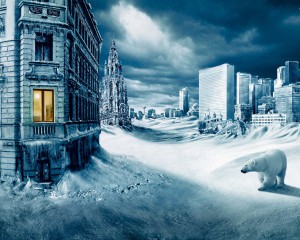The next story: Winter City, where misbehaving children will one day wake up. It’s “a frigid place where everything was covered in snow and you were perpetually alone.” Solitude is an important themes in the novel, as S. spends significant spans of time alone. Here, solitude is equated to hell juxtaposed with the social spirit of the present moment.
Winter City is such a broad name that finding real life references is a challenge. A comic book series exists about an “abandoned, abused, and lonely boy.” It is also where S. ends up towards the end of the book. Jen says, “S. isn’t too bothered by it [the solitude]”. Eric believes it’s an indifference due to fatigue not spirit.
The theme of time and maturity emerges when Jen scoffs at Eric for making a stretch, noting “Many refs to The Painted Caves“. Eric defends himself by pleading his immaturity at the time: “I was 16. It was exciting to notice references like that.” Eric takes a stance of embarrassment vis-à-vis his past notes, while Jen generally finds them interesting. It’s unclear whether she made fun of him or was trying to provoke a scholarly debate as she doesn’t respond to Eric’s defense.
On a similar note, the topic of seeing or visiting parents comes up. Jen says it’s “understandable but sad” that Eric does not have a relationship with his parents. This is a problem of adulthood and is part of the aging theme.



You must be logged in to post a comment.